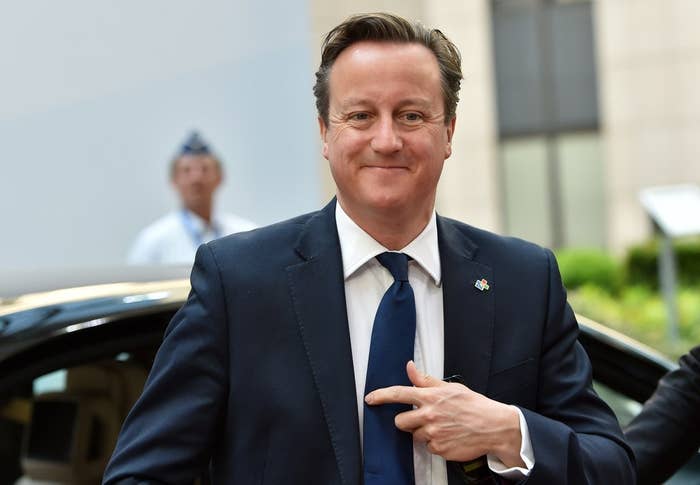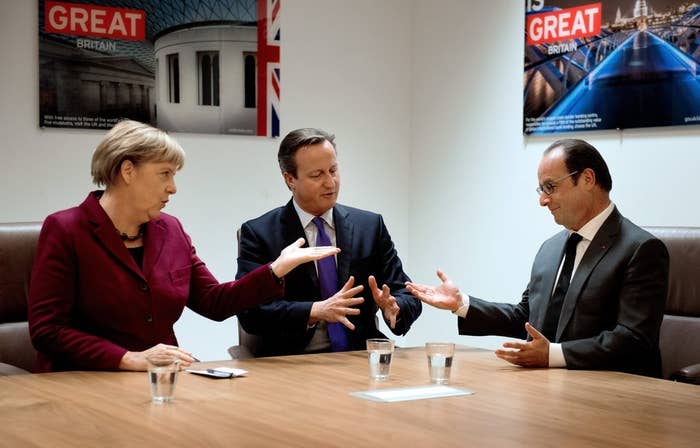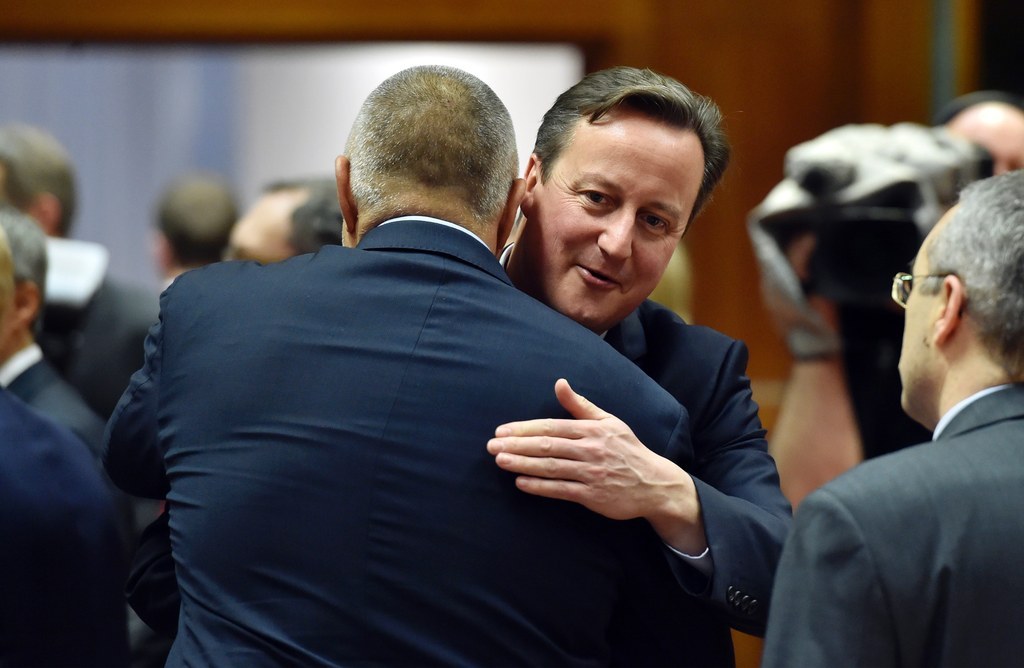
David Cameron has spent months whizzing around Europe trying to convince fellow leaders of the merits of EU reform – and now, finally, he might be edging closer to a deal. British negotiators were in Brussels on Monday trying to thrash out a list of solutions to the UK's problems with the EU ahead of a key summit on 18 February. If the draft solutions are then agreed by all 28 EU nations, Cameron could call a referendum on Britain's membership in June.
But a deal is not yet in the bag. European Council president Donald Tusk, who dined with Cameron on Sunday night, thrilled journalists by declaring afterwards: "No deal." He tweeted ominously that "intensive work" in the next 24 hours was "crucial". The next morning, Cameron's spokeswoman also cautioned there was "more hard work to be done" in both securing the deal and persuading other member states to agree.
Anti-EU campaigners believe this is all a carefully stage-managed ploy. They say a deal will inevitably be agreed and Cameron will present it as a major win following the "tensions" of the 24-hour headlines. Any deal that looks as though Cameron has scored victory against the odds – pummelling other EU leaders into submission – could net the "In" campaign an extra 10 to 15 points in the polls, according to one EU-exit campaigner.
Critics also believe that the focus on a so-called "emergency brake" on benefits helps Number 10 by distracting voters from much deeper reforms originally floated by Cameron, such as curbing immigration from within the EU altogether. They claim the government is keen for an early referendum this summer to avoid too much scrutiny over the final deal.
Robert Oxley from the Vote Leave campaign told BuzzFeed News: "From the start the renegotiation has been about the process rather than the outcome for Number 10. It has been a method of suggesting things are changing when they are not.
"The hope of Downing Street strategists is to ride a bounce in the polls after the PM declares victory following a heavily stage-managed fight over minor aspects of the renegotiation, all before the deal can fall apart. The problem is the renegotiation won't actually affect the things the PM is saying he is trying to fix."

Cameron has set out four main areas where he wants to see changes from the EU: immigration, competitiveness, sovereignty, and protection for countries outside the eurozone. But it's just one aspect of immigration that's been getting the most attention – his plan to deny in-work benefits to all EU migrants until they have lived in Britain for four years.
He hopes this will limit the number of people coming to work in the UK, although an economist from the Office for Budget Responsibility said in December it wouldn't have much of an impact.
Brussels chiefs aren't keen on curbing benefits for EU migrants, because it breaches the principle of free movement, so have instead proposed an "emergency brake" that only allows Britain to do so if it can prove public services are under massive strain. It's not yet clear how exactly it would operate or how long it could stay in place.
Much media coverage is now focused on the intricacies of this benefits policy. Liz Bilney from the Leave.EU campaign said it was simply a "blatantly staged row over a trivial question" designed to "distract the public from the fact that we are not even asking for an end to the supremacy of EU law over national law, genuine control over migration or independent representation on global bodies and the power to make our own trade deals".
UKIP deputy leader Paul Nuttall also criticised the "theatrics and drama of David Cameron's sham renegotiation", warning: "He is playing us for fools." One Tory backbencher told BuzzFeed News that the "emergency brake" underlined how Cameron had significantly watered down his demands from the EU. "We've gone from [cutting the number of] migrants, to the benefits of migrants – and now even that'll be halved," he said.
Number 10 has vehemently denied any claims of a choreographed row. In answer to a question from BuzzFeed News on Monday, the PM's spokeswoman said: "I wouldn't accept that at all. Look at the amount of hard work, time, and effort the prime minister, other senior ministers and senior government officials have had to put into this.
"Look at the work we have had to do with a number of other European countries who have raised concerns. These are significant, far-reaching reforms and that is why it is taking time."

The apparent theatrics were predicted last summer by one of Cameron's former cabinet ministers. Ex–health secretary Andrew Lansley reportedly told business leaders that Cameron would "choreograph" a row with France at February's summit to persuade voters he had secured a good deal. In speech notes seen by the Sunday Times, he said: "Other EU governments should recognise the need for UK 'wins', preferably following some 'rows'."
"Out" campaigners believe Cameron is desperate to keep Britain inside the EU and is doing the bare minimum to find reforms make sure that's the case. They point to a leaked diplomatic note in The Guardian last June that revealed he told a fellow EU leader his "firm aim was to keep the UK in the EU". That's despite Cameron's public statements that he could campaign for Brexit if he doesn't get enough changes.
Eurosceptics are also furious that the Brussels machine seems to be doing everything it can to help Britain stay in the EU. One campaigner told BuzzFeed News: "The European Commission is bending over backwards because they know that if Britain leaves, the EU project is screwed."
